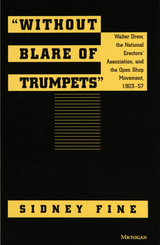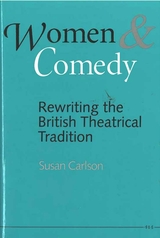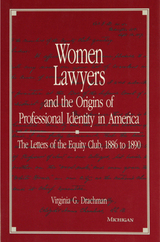4 books about Richard McKeon
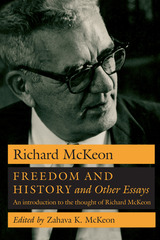
Freedom and History and Other Essays
An Introduction to the Thought of Richard McKeon
Richard McKeon
University of Chicago Press, 1990
This volume of essays is an important introduction to the thought of one of the twentieth century's most significant yet underappreciated philosophers, Richard McKeon. The originator of philosophical pluralism, McKeon made extraordinary contributions to philosophy, to international relations, and to theory-formation in the communication arts, aesthetics, the organization of knowledge, and the practical sciences. This collection, which includes a philosophical autobiography as well as the out-of-print title essay "Freedom and History" and a previously unpublished essay on "Philosophic Semantics and Philosophic Inquiry," is a testimony to the range and systematic power of McKeon's thinking for the social sciences and the humanities.
[more]
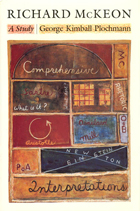
Richard McKeon
A Study
George Kimball Plochmann
University of Chicago Press, 1990
In the contemporary atmosphere of concern with the problems of relativism, cultural pluralism, and textuality, the time is ripe for rediscovery of the thought of Richard McKeon, one of the most important but neglected American philosophers of this century. This study by George Kimball Plochmann, a former student of McKeon's, is the first book-length treatment of the ideas of this legendary teacher, scholar, and diplomat who outlined a profound and creative vision for the reorganization of all knowledge and discourse.
[more]

Selected Writings of Richard McKeon
Volume One: Philosophy, Science, and Culture
Richard McKeon
University of Chicago Press, 1998
Richard McKeon enjoys an enviable reputation as an erudite historian of ideas and exegete of philosophic texts. However, the originality and scope of his achievement as a systematic philosopher are less widely known. In this ambitious three-volume edition, of which Philosophy, Science, and Culture is the first, a selection of McKeon's writings will be collected to showcase his distinctive approach to the analysis of discourse. Volume I covers philosophic theory through his writings on first philosophy (metaphysics) and the methods and principles of the sciences, Volume II examines philosophic arts through his writings on aesthetics and forms of discourse as a whole, and Volume III looks at philosophic practice through his writings on world community and the relations of cultures.
Philosophy, Science, and Culture covers topics that range from philosophic semantics to the processes of the sciences to the forms of human rights. This collection makes McKeon's mission as a philosopher unmistakable. He characterized himself as a philosophic pluralist; he was an American philosopher in the tradition of the pragmatists, one whose philosophy subtly resonates with C. S. Peirce and John Dewey. McKeon also explored the themes of deconstructionism and other late-twentieth-century philosophies decades before their popular emergence—but, in generating a matrix of possibilities for productive debate, he avoided both relativism and the entrapments of dogmatism.
An important collection of his writings, this series will establish Richard McKeon as one of the foremost philosophers of the twentieth century.
Richard McKeon (1900-1985) taught philosophy at the University of Chicago from 1935 to 1973, and at the time of his death had published eleven books and 158 articles on an extraordinary array of topics and cultures. Among his many national and international distinctions, he was awarded the highest honor of the American Philosophical Association when he was invited to give the Paul Carus Lectures in New York in 1965.
Philosophy, Science, and Culture covers topics that range from philosophic semantics to the processes of the sciences to the forms of human rights. This collection makes McKeon's mission as a philosopher unmistakable. He characterized himself as a philosophic pluralist; he was an American philosopher in the tradition of the pragmatists, one whose philosophy subtly resonates with C. S. Peirce and John Dewey. McKeon also explored the themes of deconstructionism and other late-twentieth-century philosophies decades before their popular emergence—but, in generating a matrix of possibilities for productive debate, he avoided both relativism and the entrapments of dogmatism.
An important collection of his writings, this series will establish Richard McKeon as one of the foremost philosophers of the twentieth century.
Richard McKeon (1900-1985) taught philosophy at the University of Chicago from 1935 to 1973, and at the time of his death had published eleven books and 158 articles on an extraordinary array of topics and cultures. Among his many national and international distinctions, he was awarded the highest honor of the American Philosophical Association when he was invited to give the Paul Carus Lectures in New York in 1965.
[more]
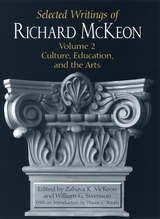
Selected Writings of Richard McKeon, Volume Two
Culture, Education, and the Arts
Richard P. McKeon
University of Chicago Press, 2005
Richard McKeon was a philosopher of extraordinary creativity who brought profoundly original ideas to bear on more standard ways of thinking and learning. A classicist, medievalist, and revolutionary intellectual, he fashioned an approach to philosophy as a plural conversation among varied traditions of thought, epochs, and civilizations. This second volume of McKeon's selected works demonstrates his approach to inquiry and practice in culture, education, and the arts.
Together, the writings in this book show how McKeon reinvented the ancient arts of rhetoric, grammar, logic, and dialectic for the new circumstances of a global culture. In essays on creation and criticism, for instance, rhetoric is distinguished from grammar and shown to be the master art of invention, judgment, and pluralistic interpretation. Writings on themes of culture, meanwhile, explore the self-invention of mankind as justification for the arts, the development of the humanities, and the organization of the sciences. In the closing essays on education and philosophy, McKeon considers the implications of his ideas for the future of the liberal arts and higher learning.
Together, the writings in this book show how McKeon reinvented the ancient arts of rhetoric, grammar, logic, and dialectic for the new circumstances of a global culture. In essays on creation and criticism, for instance, rhetoric is distinguished from grammar and shown to be the master art of invention, judgment, and pluralistic interpretation. Writings on themes of culture, meanwhile, explore the self-invention of mankind as justification for the arts, the development of the humanities, and the organization of the sciences. In the closing essays on education and philosophy, McKeon considers the implications of his ideas for the future of the liberal arts and higher learning.
[more]
READERS
Browse our collection.
PUBLISHERS
See BiblioVault's publisher services.
STUDENT SERVICES
Files for college accessibility offices.
UChicago Accessibility Resources
home | accessibility | search | about | contact us
BiblioVault ® 2001 - 2025
The University of Chicago Press


